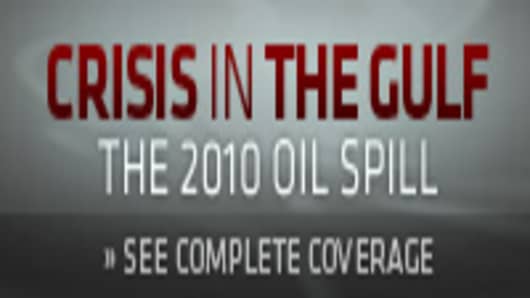A fourth-generation oyster producer in Louisiana told CNBC Monday that the BP oil spill and its potential impact on his business is “scary.”
“It’s already out of control. It’s already devastating,” said John Tesvich. “The potential, we don’t even know. That’s the scary part.”
The boats of some commercial fishermen and sports fishing captains are sitting idle in the Louisiana Gulf Coast region, in light of the spill two weeks ago.
Tesvich is on-hold for this year’s production and possibly for next year’s as well, as his company is unable to lay ground shells in the oyster beds that are needed to grow the briny mollusks, considered a delicacy by some and a staple in most restaurants that line the Gulf Coast.
Shrimper Joey Rodriguez of the Southern Shrimp Alliance told CNBC on Monday that shrimping west of the Mississippi River is, so far, untainted by the oil spill.
At this point, he added, brown shrimp is moving from the shallow to open waters, where they grow to maturity, while white shrimp with their larvae, which grows offshore, is now in open waters.
The life cycle of a shrimp is about a year.
American shrimp producers, who have been impacted in recent years by the importation of cheap shrimp from Vietnam, Thailand and India, may experience another blow to their livelihood due to the oil spill.
Rodriquez sounded a positive note: “I’m hopeful that the U.S. buyer will demand our wild caught product and get the demand up even more.”



